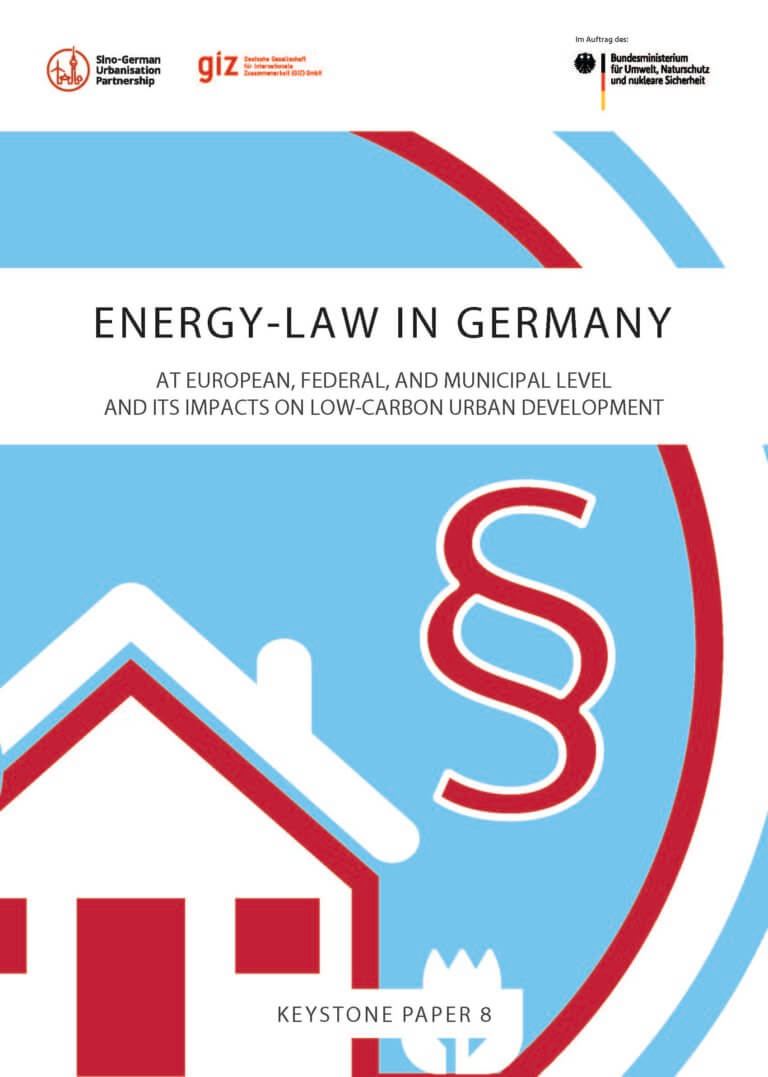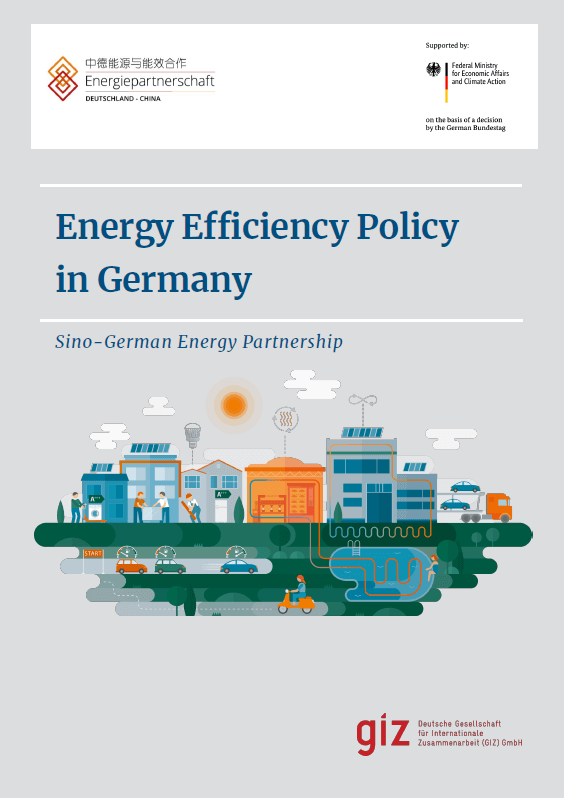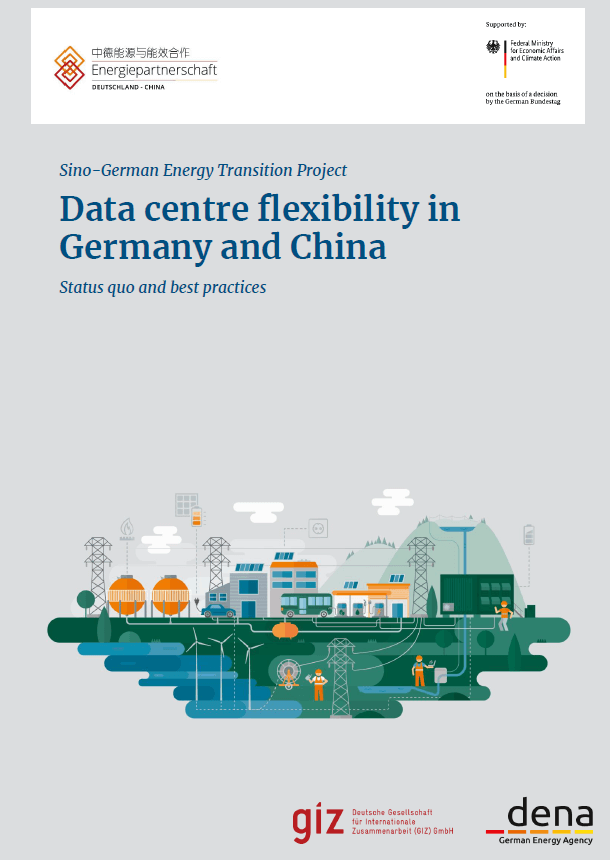Energy-Law in Germany at European, Federal, and Municipal Level and its Impacts on Low-Carbon Urban Development
This document is part of ten keystone papers looking at current emerging topics in the building and city sector, focusing on energy efficiency and resilience. The keystone papers were developed within the framework of the Sino-German Urbanisation Partnership as a basis for its working topics. The Chinese Version can be found here.
This publication deals with the effects of energy regulations in the European Union and the Federal Republic of Germany on (sustainable) urban development. It becomes clear that these regulations, relate to commitments on the international level, the strategies, programmes and laws on EU and national level.The regulations and directives of the EU on energy have their greatest impact at the building level. Beyond that, formal and informal instruments at the national, state, and municipal level offer opportunities to develop cities towards climate neutrality.
The question is: Is it enough? Can all actors continue this way? Will the goals that have been set be achieved? Is the glass half full or half empty?Moreover, recently the EU not only rea ffirmed its will, but also tightened the targets (EU target to reduce greenhouse gases from 40% to 55% by 2050). The German government was even ordered (!) by the highest national court to improve the set targets (seen as not ambitious enough), to ensure the living conditions of future generations.





